Exclusive 3:16 Interview With George Berkeley
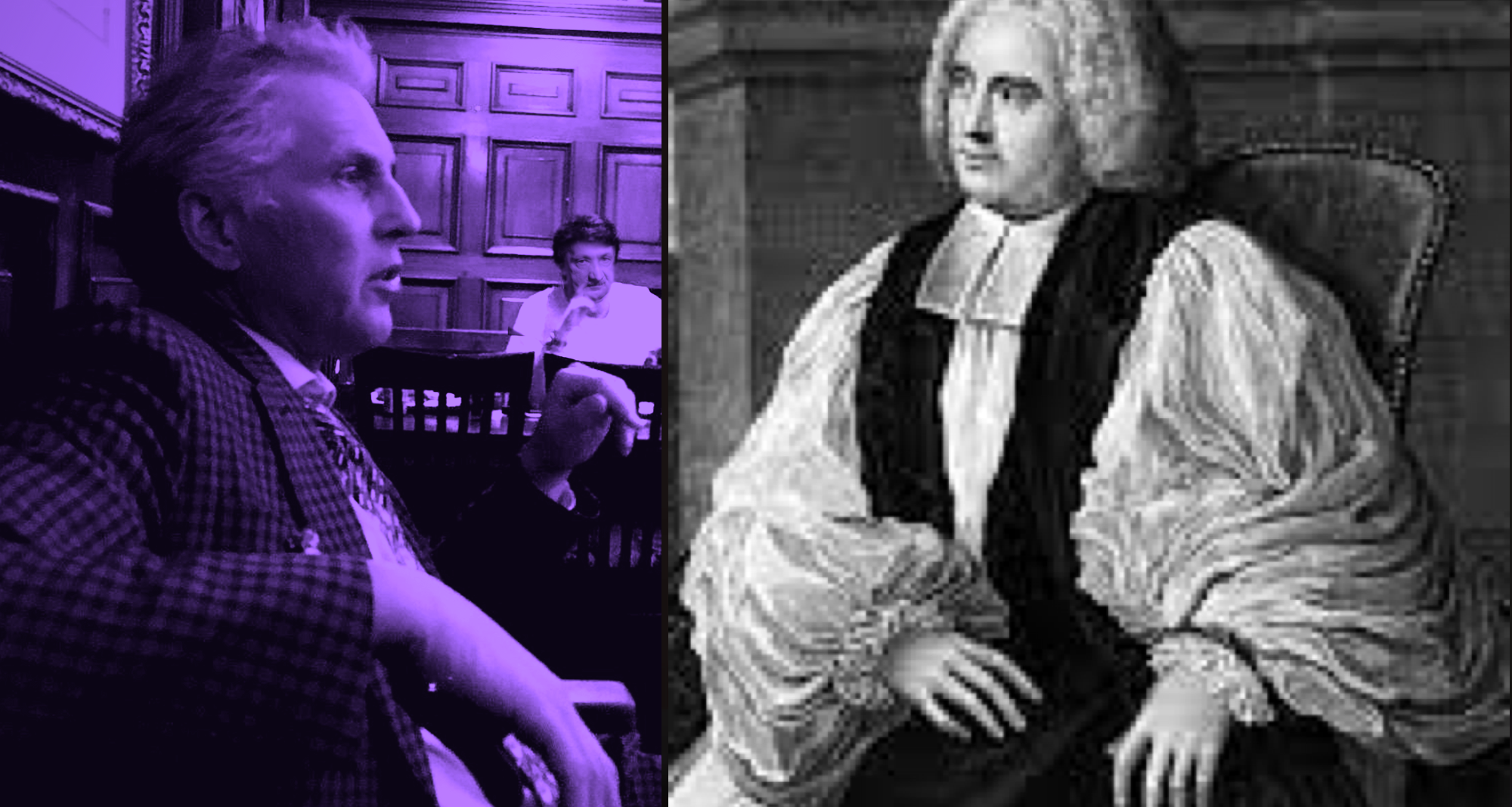
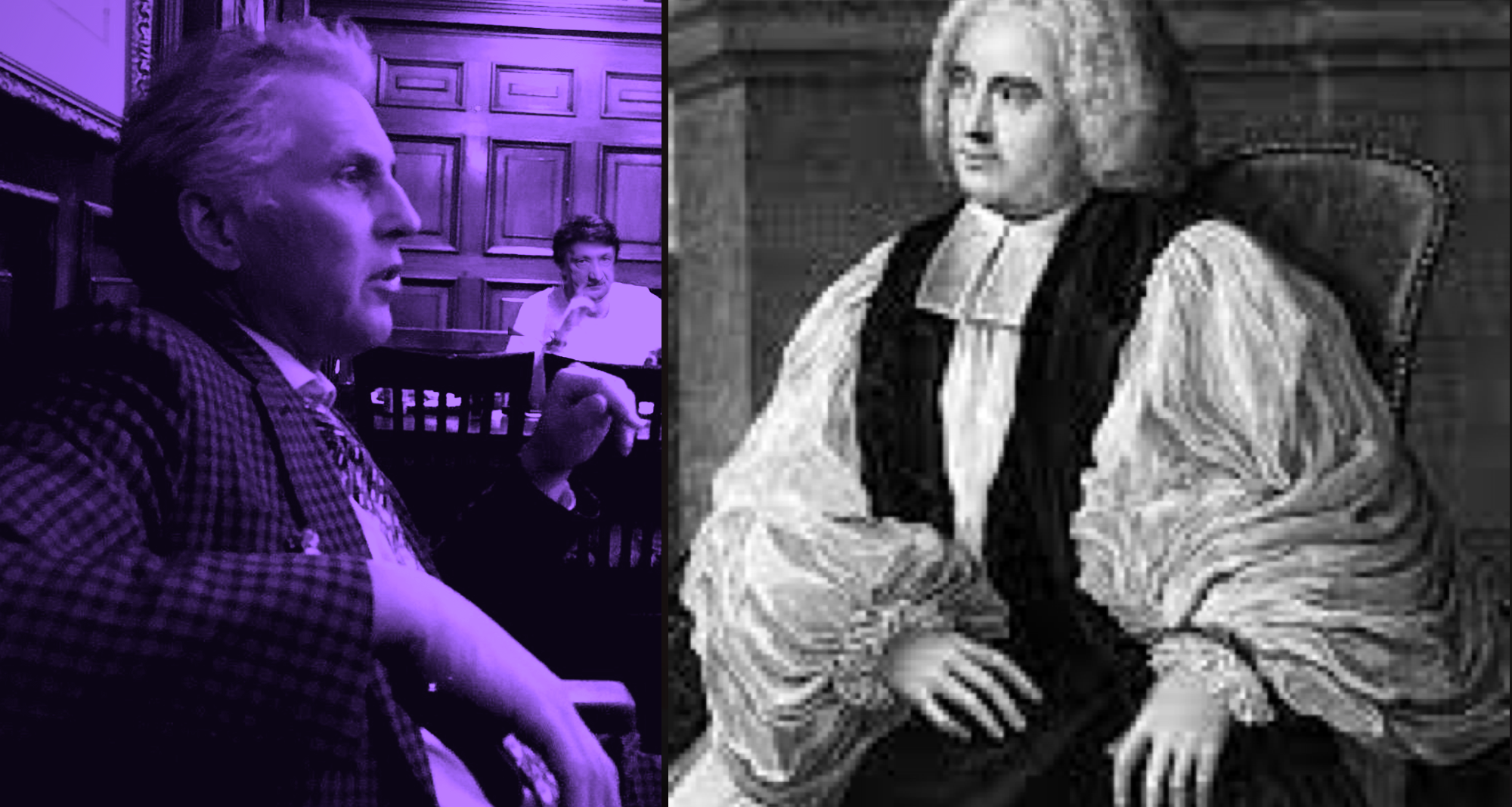
George Berkeley, Bishop of Cloyne, is one of the great philosophers of the early modern period. He is a brilliant critic of his predecessors, particularly Descartes, Malebranche, and Locke. He is a talented metaphysician famous for defending idealism, that is, the view that reality consists exclusively of minds and their ideas. Berkeley’s system, while it strikes many as counter-intuitive, is strong and flexible enough to counter most objections. His most-studied works, the Treatise Concerning the Principles of Human Knowledge (Principles, for short) and Three Dialogues between Hylas and Philonous (Dialogues), are beautifully written and dense with the sort of arguments that delight contemporary philosophers. He is also a wide-ranging thinker with interests in religion (which were fundamental to his philosophical motivations), the psychology of vision, mathematics, physics, morals, economics, and medicine. Although many of Berkeley’s first readers greet him with incomprehension, he influenced both Hume and Kant, and is much read (if little followed) in our own day.
3:16: What made you become a philosopher?
George Berkeley: I was distrustful at 8 years old; and consequently by nature disposed for these new doctrines. One thing I know I am not guilty of. I do not pin my faith on the sleeve of any great man. I act not out of prejudice and prepossession. I do not adhere to any opinion because it is an old one, a received one, a fashionable one, or one that I have spent much time in the study and cultivation of. The chief thing I do or pretend to do is only to remove the mist or veil of words. This mist has occasioned ignorance and confusion. It has ruined the schoolmen and mathematicians, lawyers and divines. I have made a beginning of the work: the fortune of the human race will give the issue. For the matter in hand is no mere felicity of speculation, but the real business and fortunes of the human race.
3:16: What do you get out of doing philosophy?
GB: My speculations have had the same effect upon me as visiting foreign countries — in the end I return where I was before, get my heart at ease, and enjoy myself with more satisfaction. With my principle of esse est percipi, aut percipere - to be is to be perceived , or to perceive - the philosophers lose their abstract matter; the materialists lose their abstract extension; the profane lose their extended deity. Pray what do the rest of mankind lose?
3:16: You think philosophising can be dangerous though don't you ?
GB: I’d put it like this Richard: It is a strange thing and deserves our attention, that the more time and pains men have consumed in the study of philosophy, by so much the more they look upon themselves to be ignorant and weak creatures. They discover flaws and imperfections in their faculties which other men never spy out. They find themselves under a necessity of admitting many inconsistent, irreconcilable opinions for true. There is nothing they touch with their hand, or behold with their eyes, but has its dark sides much larger and more numerous than what is perceived, and at length turn skeptics, at least in most things. These men with a supercilious pride disdain the common single information of sense. They grasp at knowledge by sheaves and bundles. It is well if, catching at too much at once, they hold nothing but emptiness and air. They in the depth of their understanding contemplate abstract ideas. It seems not improbable that the most comprehensive and sublime intellects see more at once, that is, that their visual systems are the largest.
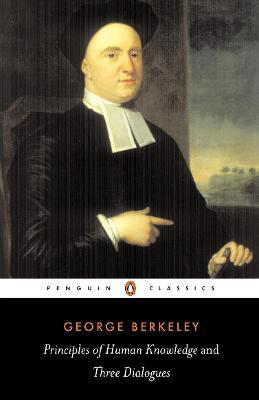
3:16: So do you see what you’re doing as trying to reset the philosophers so they work on useful issues and stay within the bounds of common sense?
GB: Yes Richard. Though it seems the general opinion of the world that the end of speculation be practice, or the improvement and regulation of our lives and actions, yet those who are most addicted to speculative studies seem as generally of another mind. Philosophers are taught to distinguish their real nature from that which falls under our senses. Hence arise skepticism and paradoxes. It is not enough that we see and feel, that we taste and smell a thing: its true nature, its absolute external entity, is still concealed. For, though it be the fiction of our own brain, we have made it inaccessible to all our faculties. Sense is fallacious, reason defective. We spend our lives in doubting those things which other men evidently know, and believing those things which they laugh at and despise.
3:16: So you’re out to help philosophers avoid wasting their time and sticking to useful thinking?
GB: Yes Richard. In order to divert the busy mind of man from vain researches it seemed necessary to inquire into the source of its perplexities; and, if possible, to lay down such principles as, by an easy solution of them, together with their own native evidence, may at once recommend themselves for genuine to the mind, and rescue it from those endless pursuits it is engaged in.
3:16: Do you think philosophers will thank you for this?
GB: Well Richard although it may, perhaps, seem an uneasy reflection to some, that when they have taken a circuit through so many refined and unvulgar notions, they should at last come to think like other men; yet, methinks, this return to the simple dictates of nature, after having wandered through the wild mazes of philosophy, is not unpleasant.
3:16: You’re not a fan of freethinkers and atheists are you?
GB: Richard, to an impartial reader I hope it will be manifest that the sublime notion of a God, and the comfortable expectation of Immortality, do naturally arise from a close and methodical application of thought: whatever may be the result of that loose, rambling way, not altogether improperly termed free-thinking by certain libertines in thought, who can no more endure the restraints of logic than those of religion or government.
3:16: If your aim is to prevent philosophical types from losing their common sense then in a way you’re really only writing for a small number of people aren’t you?
GB: Yes, so far as it tends to ease the mind of difficult and useless inquiries, it can affect only a few speculative persons. But if, by their speculations rightly placed, the study of morality and the law of nature were brought more into fashion among men of parts and genius there are grounds to think these effects would not only have a gradual influence in repairing the too much defaced sense of virtue in the world, but also, by showing that such parts of revelation as lie within the reach of human inquiry are most agreeable to right reason, would dispose all prudent, unprejudiced persons to a modest and wary treatment of those sacred mysteries which are above the comprehension of our faculties.
3:16: In a way then, despite the initial weirdness of your ideas, you’re a common sense philosopher?
GB: Yes, I’m eternally banishing metaphysics and such like and recalling men to common sense. There are men who say there are insensible extensions. There are others who say the wall is not white, the fire is not hot, etc. We Irishmen cannot attain to these truths.
3:16: You say the true way of regarding the world we see and touch is to regard it as consisting of ideas or phenomena that are presented to human senses, somehow regularly ordered, and the occasions of pleasure or pain to us as we conform to or rebel against their natural order. Does this mean you don’t think there are things in themselves, independent of minds?
GB: Well Richard, I don’t know what is meant by things considered in themselves, that is, in abstraction. This is nonsense. ‘Thing’ and ‘idea’ are words of much about the same extent and meaning. Existence is not conceivable without perception and volition. I only declare the meaning of the word ‘existence’, as far as I can comprehend it. Pure intellect I understand not at all. It’s impossible anything besides that which thinks and is thought on should exist.
3:16: I have to admit to a strong inclination to believe that things exist even when I’m not perceiving them – I think I’d be insane not to think that. So why do you seem to be denying this?
GB: It is indeed an opinion strangely prevailing amongst men, that houses, mountains, rivers, and in a word all sensible objects have an existence natural or real, distinct from their being perceived by the understanding. But with how great an assurance and acquiescence whatsoever this principle may be entertained in the world; yet whoever shall find in his heart to call it in question, may, if I mistake not, perceive it to involve a manifest contradiction. For what are the forementioned objects but the things we perceive by sense, and what do we perceive besides our own ideas or sensations; and is it not plainly repugnant that any one of these or any combination of them should exist unperceived?
3:16: But doesn’t the perception resemble a thing distinct from the perception?
GB: Ok Richard, so you’re saying that though the ideas themselves do not exist without the mind, yet there may be things like them of which they are copies or resemblances, things which exist without the mind in an unthinking substance. I answer, an idea can be like nothing but an idea; a colour or figure can be like nothing but another colour or figure.
3:16: Why not?
GB: Because two things cannot be said to be alike or unlike till they have been compared.
3:16: Don’t you think we need a material bodies to cause our perceptions?
GB: Though we give the materialists their external bodies, they by their own confession are never the nearer knowing how our ideas are produced since they own themselves unable to comprehend in what manner body can act upon spirit, or how it is possible it should imprint any idea in the mind. Hence it is evident the production of ideas or sensations in our minds, can be no reason why we should suppose matter or corporeal substances, since that is acknowledged to remain equally inexplicable with, or without this supposition. And let me quote Locke here: ‘ Body as far as we can conceive being able only to strike and affect body; and Motion, according to the utmost reach of our Ideas, being able to produce nothing but Motion, so that when we allow it to produce pleasure or pain, or the Idea of a Colour, or Sound, we are fain to quit our Reason, go beyond our Ideas, and attribute it wholly to the good Pleasure of our Maker.’ So go figure Richard.
3:16: Why can’t we conceive of mind-independent objects, that is, objects existing unperceived and unthought of?
GB: I am content to put the whole upon this issue; if you can but conceive it possible for one extended moveable substance, or in general, for any one idea or any thing like an idea, to exist otherwise than in a mind perceiving it, I shall readily give up the cause….
3:16: The trees in the park with no one in it.
GB: Ah Richard, so you say, surely there is nothing easier than to imagine trees, for instance, in a park, or books existing in a closet, and no body by to perceive them. I answer, you may so, there is no difficulty in it: but what is all this, I beseech you, more than framing in your mind certain ideas which you call books and trees, and at the same time omitting to frame the idea of any one that may perceive them? But do you not yourself perceive or think of them all the while? This therefore is nothing to the purpose: it only shows you have the power of imagining or forming ideas in your mind; but it doth not show that you can conceive it possible that the objects of your thought may exist without the mind: to make out this, it is necessary that you conceive them existing unconceived or unthought of, which is a manifest repugnancy. When we do our utmost to conceive the existence of external bodies, we are all the while only contemplating our own ideas. But the mind taking no notice of itself, is deluded to think it can and does conceive bodies existing unthought of or without the mind; though at the same time they are apprehended by or exist in it self.
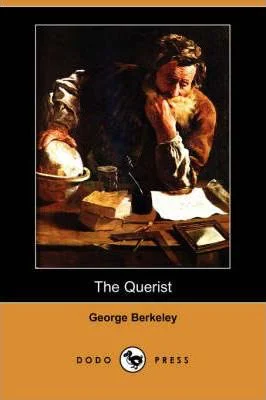
3:16: In a way are you saying that the notion of matter is a product of science and science is a product of our intellect? You’re not arguing against the universal intellectual principles of a science then?
GB: Well Richard, the principles and theorems of sciences are universal intellectual notions, and consequently independent of matter.
3:16: What do you say to those who say that you need a brain to have thoughts and brains are made of matter, which refutes your position?
GB: Don’t be daft Richard. The brain therefore you speak of, being a sensible thing, exists only in the mind. When, therefore, you say all ideas are occasioned by impressions in the brain, do you conceive this brain or no? If you do, then you talk of ideas imprinted in an idea causing that same idea, which is absurd. If you do not conceive it, you talk unintelligibly, instead of forming a reasonable hypothesis. What connection is there between a motion in the nerves, and the sensations of sound or colour in the mind? Or how is it possible these should be the effect of that? Take away perceptions and you take away mind. Put the perceptions and you put the mind. The understanding seems not to differ from its perceptions and ideas. I side in all things with the mob.
3:16: You’re quite controversial aren’t you George?
GB: Richard, I know there is a mighty sect of men will oppose me, but yet I may expect to be supported by those whose minds are not so far overgrown with madness. These are far the greatest part of mankind—especially moralists, divines, politicians; in a word, all but mathematicians and natural philosophers. I mean only the hypothetical gentlemen. Experimental philosophers have nothing whereat to be offended in me. Newton begs his Principles; I demonstrate mine.
3:16: You have little time for Plato, Aristotle and the Scholastic philosophy do you?
GB: Well Richard, let’s face it, the Schoolmen have noble subjects, but handle them ill.
3:16: Do you think mathematics can change this?
GB: Not really Richard: the mathematicians have trifling subjects, but reason admirably about them. Certainly their method and arguing are excellent. God knows how far our knowledge of intellectual beings may be enlarged from their principles. The reverse of their principles I take to have been the chief source of all that skepticism and folly, all those contradictions and inextricable puzzling absurdities, that have in all ages been a reproach to human reason, as well as of that idolatry, whether of images or of gold, that blinds the greatest part of the world, and that shameful immorality that turns us into beasts. So Aristotle is as good a man as Euclid, but he was allowed to have been mistaken.
3:16: So the Scholastic philosophers have identified the big questions but haven’t handled them well, whilst the mathematicians have a good approach but deal with trifles. Is that your position?
GB: Yes. If the disputations of the Schoolmen are blamed for intricacy, triflingness, and confusion, yet it must be acknowledged that in the main they treated of great and important subjects. If we admire the method and acuteness of the mathematicians—the length, the subtlety, the exactness of their demonstrations—we must nevertheless be forced to grant that they are for the most part about trifling subjects, and perhaps mean nothing at all. We have learned from Mr. Locke that there may be, and that there are, several glib, coherent, methodical discourses, which nevertheless amount to just nothing. This by him intended in relation to the Schoolmen. I apply it to the mathematicians.
3:16: Newton is important to you isn’t he?
GB: Truly number is immensurable. That we will allow with Newton. I take notice of Newton for defining motion; but also of Locke's wisdom in leaving it undefined. Ask a Cartesian whether he is wont to imagine his globules without colour. Pellucidness is a colour. The colour of ordinary light of the sun is white. Newton is right in assigning colours to the rays of light. Consider Newton’s two sorts of green Richard. Newton says colour is in the subtle matter. Hence Malebranche proves nothing, or is mistaken, in asserting there is only figure and motion. I see no wit in any mathematician but Newton. The rest are mere triflers, mere Nihilarians. Mind you, Sir Isaac owns his book could have been demonstrated on the supposition of indivisibles.
3:16: So some have said your idealism is a form of skepticism. Are they right?
GB: Not at all. Many of the ancient philosophers run into so great absurdities as even to deny the existence of motion, and of those other things they perceived actually by their senses. This sprung from their not knowing what existence was, and wherein it consisted. This the source of all their folly. It is on the discovering of the nature and meaning and import of existence that I chiefly insist. This puts a wide difference between the skeptics and me. I am the farthest from skepticism of any man. I know with an intuitive knowledge the existence of other things as well as my own soul.
3:16: So are you doing something new?
GB: Richard, this I think is wholly new. I am sure this is new to me.
3:16: You criticise Locke but you admire him too don’t you?
GB: Well Richard, Locke seems wrongly to assign a double use of words: one for communicating and the other for recording our thoughts. It’s absurd to use words for recording our thoughts to ourselves, or in our private meditations. Locke says the modes of simple ideas, besides extension and number, are counted by degrees. I deny there are any modes or degrees of simple ideas. What he terms such are complex ideas, as I have proved. I don’t approve of that which Locke says when he claims truth consists in the joining and separating of signs. Locke cannot explain general truth or knowledge without treating of words and propositions. This makes for me against abstract general ideas. Locke's very supposition that matter and motion should exist before thought is absurd—it includes a manifest contradiction. As I said earlier, Locke's harangue about coherent, methodical discourses amounting to nothing is what I applied to the mathematicians. But such was the candor of this great man that I persuade myself, were he alive, he would not be offended that I differ from him: seeing that even in so doing I follow his advice and use my own judgment, see with my own eyes, and not with another's. What’s wonderful in Locke is that he could, when advanced in years, see at all through a mist; it had been so long a gathering, and was consequently thick. This is more to be admired than that he did not see farther.
3:16: What’s the use of maths then if its so trifling? Do you mean philosophically trifling?
GB: Complex ideas are the creatures of the mind. Hence may appear the nature of numbers. I am better informed and shall know more by telling me there are 10,000 men, than by showing me them all drawn up. I shall better be able to judge of the bargain you'd have me make when you tell me how much money lies on the table, than by offering and showing it without naming. I regard not the idea, the looks, but the names. Hence may appear the nature of numbers. Children are unacquainted with numbers till they have made some progress in language. This could not be if they were ideas suggested by all the senses. Numbers are nothing but names—never words. In arithmetical problems men seek not any idea of number. They only seek a denomination. This is all can be of use to them. Take away the signs from arithmetic and algebra, and pray what remains? These are sciences purely verbal, and entirely useless but for practice in societies of men. There’s no speculative knowledge, no comparing of ideas in them.
3:16: If we don’t have abstraction, aren’t we just like other beasts? How if at all are we different?
GB: By shape, by language. Rather by degrees of more and less. Perhaps the composition of ideas is that faculty which chiefly serves to discriminate us from brutes? I question whether a brute does or can imagine a blue horse or chimera.
3:16: Why do you thinks language is a problem for thinking clearly about reality?
GB: Abstraction Richard! The doctrine of abstraction is of very evil consequence in all the sciences and entirely owing to language. Contemplate a man put into the world alone, with admirable abilities, and see how after long experience he would know without words. Such a one would never think of genera and species or abstract general ideas.
3:16: You say everything is mind or soul – but what is this soul?
GB: We think we know not the soul, because we have no imaginable or sensible idea annexed to that sound. This the effect of prejudice. Certainly we do not know it. This will be plain if we examine what we mean by the word knowledge. Neither does this argue any defect in our knowledge, no more than our not knowing a contradiction. The very existence of ideas constitutes the soul. Consciousness, perception, existence of ideas, seem to be all one. Consult, ransack your understanding. What do you find there besides several perceptions or thoughts? What do you mean by the word mind? You must mean something that you perceive, or yet you do not perceive. A thing not perceived is a contradiction. To mean also a thing you do not perceive is a contradiction. We are in all this matter strangely abused by words.
3:16: If mind is our perceptions, what is a person?
GB: The grand mistake is that we don’t know what we mean by “we,” or “selves,” or “mind”. It’s most sure and certain that our ideas are distinct from the mind, that is, the Will, the Spirit. I must not mention the understanding as a faculty or part of the mind. I must include understanding and will in the word Spirit—by which I mean all that is active. I must not say that the understanding doesn’t differs from the particular ideas, or the will from particular volitions. The Spirit, the Mind, is neither a volition nor an idea. I say there are no causes (properly speaking) but spiritual, nothing active but Spirit.
3:16: No causes? That’s a strong claim. I thought natural philosophy was all about that. Let’s talk about that in a moment.
GB: Well no Richard, you’re right, it does seem absurd to take away natural causes, and ascribe every thing to the immediate operation of spirits. We can no longer say upon these principles that fire heats, or water cools, but that a spirit heats, and so forth. Would not a man be deservedly laughed at, who should talk after this manner? I answer, he would so; in such things we ought to think with the learned, and speak with the vulgar.
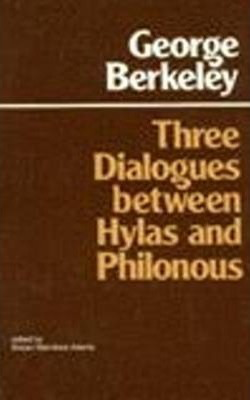
3:16: So is this merely a verbal quibble? Aren’t you just changing the meaning of the word ‘cause’? Why can’t I retain the old meaning and say that one idea causes the next, and so on?
GB: Well Richard, if you do so I shall drive you into many absurdities: you cannot avoid running into opinions you'll be glad to disown if you stick firmly to that signification of the word cause.
3:16: So mind is just a fizz of perceptions but language makes us think of it as a distinct thing – is that the idea ?
GB: Mind is a congeries of perceptions. Take away perceptions and you take away the mind. Put the perceptions and you put the mind. Say you, the mind is not the perception, not that thing which perceives. I answer, you are abused by the words “that a thing.” These are vague and empty words with us. The having ideas is not the same thing with perception. A man may have ideas when he only imagines. But then this imagination presupposes perception.
3:16: And existence is just perception?
GB: Existence is not conceivable without perception or volition. Strange it is that men should be at a loss to find their idea of existence; since that (if such there be distinct from perception) it is brought into the mind by all the ways of sensation and reflection, I think it should be most familiar to us, and we best acquainted with it. This I am sure, I have no idea of existence. And if others have that's nothing to me; they can never make me sensible of it; simple ideas being incommunicable by language.
3:16: What’s truth then?
GB: There are three sorts of truth—natural, mathematical, and moral. Truth is agreement of relation only where numbers obtain: truth is of co- existence, in nature: and of signification, by including, in morality.
3:16: And can there be error in your world? Since, according to you, men judge the reality of things by their senses, how can a man be mistaken in thinking the moon a plain lucid surface, about a foot in diameter; or a square tower, seen at a distance, round; or an oar, with one end in the water, crooked?
GB: He is not mistaken with regard to the ideas he actually perceives; but in the inferences he makes from his present perceptions. Thus in the case of the oar, what he immediately perceives by sight is certainly crooked; and so far he is in the right. But if he thence conclude, that upon taking the oar out of the water he shall perceive the same crookedness; or that it would affect his touch, as crooked things are wont to do: in that he is mistaken.
3:16: Locke didn’t think there were innate ideas. Do you agree?
GB: There are innate ideas, in the sense of ideas created with us.
3:16: Locke, as you noted earlier, also thought that thought is not essential for the mind? Do you agree with him on this?
GB: Again, no! Locke seems to be mistaken when he says thought is not essential to the mind. Certainly the mind always and constantly thinks: and we know this too. In sleep and trances the mind exists not—there is no time, no succession of ideas. To say the mind exists without thinking is a contradiction, nonsense, nothing.
3:16: You think Locke holds some dangerous views don’t you?
GB: I candidly take notice that Locke holds some dangerous opinions Richard; such as the infinity and eternity of space and the possibility of matter's thinking. Once more I desire my reader may be upon his guard against the fallacy of words. Let him beware that I do not impose on him by plausible empty talk that common dangerous way of cheating men into absurdities. Let him not regard my words any otherwise than as occasions of bringing into his mind determined significations. So far as they fail in this they are gibberish, jargon, and deserve not the name of language. I desire and warn him not to expect to find truth in my book, or anywhere but in his own mind. Whatever I see myself it is impossible I can paint it out in words.
3:16: You think we have freewill and that the very nature of our minds proves this don’t you?
GB: This is most important. I enquire diligently into that strange mystery of how it is that I can cast about, think of this or that man, place, action, when nothing appears to introduce them into my thoughts, when they have no perceivable connection with the ideas suggested by my senses at the present? Man is free. There is no difficulty in this proposition, if we but settle the signification of the word free—if we had an idea annexed to the word free, and would but contemplate that idea. We are imposed on by the words will, determine, agent, free, can, etc. Trace an infant in the womb. Mark the train and succession of its ideas. Observe how volition comes into the mind. This may perhaps acquaint you with its nature. Complacency seems rather to determine, or precede, or coincide with and constitute the essence of volition, than uneasiness. You tell me according to my doctrine a man is not free. I answer, tell me what you mean by the word free, and I shall resolve you.
3:16: This is the mystery Chomsky writes about – our ability to think freely rather than have thought determined by circumstantial and environmental triggers as in other animals. Do you therefore think voluntary action is mysteriously self-originated?
GB: Yes. It’s folly to inquire what determines the Will. Uneasiness etc are ideas, therefore inactive, therefore can do nothing, therefore cannot determine the Will. Who’s Chomsky?
3:16: He’s the closest the twenty-first century has to a seventeenth century philosopher. So how do you understand the Will? Locke said it was something that followed from an initial state of unease but you just said you don’t agree with that.
GB: No. That God and blessed spirits have Will is a manifest argument against Locke's proofs that the Will cannot be conceived, put into action, without a previous uneasiness. The act of the Will, or volition, is not uneasiness, for that uneasiness may be without volition. Volition is distinct from the object or idea for the same reason. The Will is not distinct from particular volitions. The understanding taken for a faculty is not really distinct from the Will. To ask whether a man can Will either side is an absurd question, or the word can presupposes volition. Will is a power; therefore volition is an act.
3:16: Is the Will a thing?
GB: No. The grand cause of perplexity and darkness in treating of the Will, is that we imagine it to be an object of thought: (to speak with the vulgar), we think we may perceive, contemplate, and view it like any of our ideas; whereas in truth it is no idea, nor is there any idea of it. It is totally different from the understanding, that is, from all our ideas. If you say the Will, or rather volition, is something, I answer, there is a homonymy in the word thing, when applied to ideas and volition and understanding and will. All ideas are passive.
3:16: But you seem to use the word ‘idea’ to mean ‘thing’ in some circumstances don’t you?
GB: ‘Thing’ and ‘idea’ are words of much the same extent and meaning. Why, therefore, do I not use the word ‘thing’? Answer - because thing is of greater latitude than idea. ‘Thing’ comprehends also volitions or actions. Now these are no ideas. The word ‘thing’, as comprising or standing for idea and volition is useful; as standing for idea and archetype without the mind is mischievous and useless.
3:16: Do we have an idea of the Will then?
GB: No Richard. I have no idea of a volition or act of the mind, neither has any other intelligence; for that were a contradiction. To ask, have we an idea of Will or volition, is nonsense. An idea can resemble nothing but an idea. If you ask what thing it is that wills, I answer, if you mean idea by the word thing, or anything like any idea, then I say, it is no thing at all that wills. This how extravagant whatsoever it may seem, yet is a certain truth. We are cheated by these general terms, ‘thing’, ‘is’, etc. Again, if by ‘is’ you mean is perceived, or does perceive, I say nothing which is perceived or does perceive wills. The referring ideas to things which are not ideas, the using the term “idea of,” is one great cause of mistake, as in other matters, so also in this.
3:16: Is there a difference between power and volition?
GB: Yes. There may be volition without power. But there can be no power without volition. Power implies volition, and at the same time a connotation of the effects following the volition.
3:16: How do you explain a person having one Will? Do these volitions make one Will?
GB: The spirit—the active thing—that which is soul, and God—is the Will alone. The ideas are effects—impotent things. The concrete of the Will and understanding I might call mind; not person, lest offence be given. You ask, do these volitions make one Will? What you ask is merely about a word—unity being no more.
3:16: Actually can you be a bit more precise about what you take a spirit to be as it’s pretty important and something materialists have great problems with?
GB: A spirit is one simple, undivided, active being: as it perceives ideas, it is called the understanding, and as it produces or otherwise operates about them, it is called the Will. Hence there can be no idea formed of a soul or spirit: for all ideas whatever, being passive and inert, they cannot represent to us, by way of image or likeness, that which acts. A little attention will make it plain to any one, that to have an idea which shall be like that active principle of motion and change of ideas, is absolutely impossible. Such is the nature of spirit or that which acts, that it cannot be of itself perceived, but only by the effects which it produces.
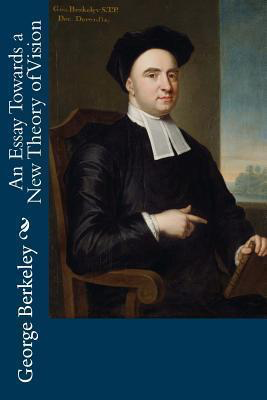
3:16: How are we to understand the causal powers of these spirits?
GB: The simple idea called power seems obscure or rather none at all, but only the relation between cause and effect. When I ask whether A can move B, if A be an intelligent thing, I mean no more than whether the volition of A that B move be attended with the motion of B, if A be senseless whether the impulse of A against B be followed by the motion of B. And what distinguishes cause from occasion? Nothing but a being which wills when the effect follows the volition. Those things that happen from without we are not the cause of it, therefore there is some other cause of them that is, there is a being that wills these perceptions in us.
3:16: So what makes a person?
GB: Wherein consists the identity of person? Not in actual consciousness; for then I'm not the same person I was this day twelvemonth but while I think of what I then did. Not in potential; for then all persons may be the same, for ought we know. I own I have properly no idea, either of God or any other spirit; for these being active, cannot be represented by things perfectly inert, as our ideas are. I do nevertheless know that I, who am a spirit or thinking substance, exist as certainly as I know my ideas exist.
Farther, I know what I mean by the terms I and myself; and I know this immediately or intuitively, though I do not perceive it as I perceive a triangle, a colour, or a sound. The Mind, Spirit, or Soul is that indivisible unextended thing which thinks, acts, and perceives. I say indivisible, because unextended; and unextended, because extended, figured, moveable things are ideas; and that which perceives ideas, which thinks and wills, is plainly itself no idea, nor like an idea. Ideas are things inactive, and perceived. And Spirits a sort of beings altogether different from them. I do not therefore say my soul is an idea, or like an idea. My own mind and my own ideas I have an immediate knowledge of; and, by the help of these, do mediately apprehend the possibility of the existence of other spirits and ideas. I know or am conscious of my own being; and that I myself am not my ideas, but somewhat else, a thinking, active principle that perceives, knows, wills, and operates about ideas.
I know that I, one and the same self, perceive both colours and sounds: that a colour cannot perceive a sound, nor a sound a colour: that I am therefore one individual principle, distinct from colour and sound; and, for the same reason, from all other sensible things and inert ideas. But, I am not in like manner conscious either of the existence or essence of matter. On the contrary, I know that nothing inconsistent can exist, and that the existence of matter implies an inconsistency.
3:16: But there seems something right about saying we are both minds and bodies, as the Cartesians say.
GB: Richard, we are chained to a body: that is to say, our perceptions are connected with corporeal motions. By the law of our nature, we are affected upon every alteration in the nervous parts of our sensible body; which sensible body, rightly considered, is nothing but a complexion of such qualities or ideas as have no existence distinct from being perceived by a mind. So that this connectionion of sensations with corporeal motions means no more than a correspondence in the order of nature, between two sets of ideas, or things immediately perceivable.
3:16: Is Will distinct from understanding?
GB: The Will and the understanding may very well be thought two distinct beings.
3:16: Isn’t your idealism extreme though? Don’t we lose too much with your approach – like, for instance, the notion of substance?
GB: I don’t take away substances. The distinguishing between an idea and perception of the idea has been one great cause of imagining material substances. I ought not to be accused of discarding substance out of the reasonable world. I only reject the philosophic sense - which in effect is no sense - of the word substance. Ask a man not tainted with their jargon what he means by corporeal substance, or the substance of body. He shall answer, bulk, solidity, and such like sensible qualities. These I retain. The philosophic nec quid, nec quantum, nec quale, whereof I have no idea, I discard; if a man may be said to discard that which never had any being, was never so much as imagined or conceived. In short, be not angry. You lose nothing, whether real or chimerical whatever you can in any wise conceive or imagine, be it never so wild, so extravagant, and absurd, much good may it do you. You may enjoy it for me. I'll never deprive you of it. We have assuredly an idea of substance. It was absurd of Locke to think we had a name without a meaning. The substance of body we know. The substance of Spirit we do not know—it not being knowable, it being a purus actus.
3:16: So again it's the words that are bewitching us?
GB: Words have ruined and overrun all the sciences—law, physique, chemistry, astrology, etc. Abstract ideas only to be had amongst the learned. The vulgar never think they have any such, nor truly do they find any want of them. Genera and species and abstract ideas are terms unknown to them.
3:16: But don’t you deny reality?
GB: I am more for reality than any other philosophers. They make a thousand doubts, and know not certainly but we may be deceived. I assert the direct contrary. If men look for a thing where it's not to be found, be they never so sagacious, it is lost labour. If a simple clumsy man knows where the game lies, he though a fool shall catch it sooner than the most fleet and dexterous that seek it elsewhere. Men choose to hunt for truth and knowledge anywhere rather than in their own understanding, where it is to be found. We are frequently puzzled and at a loss in obtaining clear and determined meanings of words commonly in use, and that because we imagine words stand for abstract general ideas which are altogether inconceivable. “A stone is a stone.” This a nonsensical proposition, and such as the solitary man would never think on. Nor do I believe he would ever think on this: “The whole is equal to its parts,” etc. Let it not be said that I take away existence. I only declare the meaning of the word, so far as I can comprehend it.
3:16: So you think we should take more care with the words we use?
GB: The vast, widespread, universal cause of our mistakes is, that we do not consider our own notions. I mean consider them in themselves—fix, settle, and determine them,—we regarding them with relation to each other only. In short, we are much out in studying the relations of things before we study them absolutely and in themselves. Thus we study to find out the relations of figures to one another, the relations also of number, without endeavouring rightly to understand the nature of extension and number in themselves. This we think is of no concern, of no difficulty; but this is of the last importance, I allow not of the distinction there is made between profit and pleasure. I'd never blame a man for acting upon interest. He's a fool that acts on any other principles. The not considering these things has been of ill consequence in morality. My positive assertions are no less modest than those that are introduced with “It seems to me,” “I suppose,” etc since I declare, once for all, that all I write or think is entirely about things as they appear to me. It concerns no man else any further than his thoughts agree with mine.
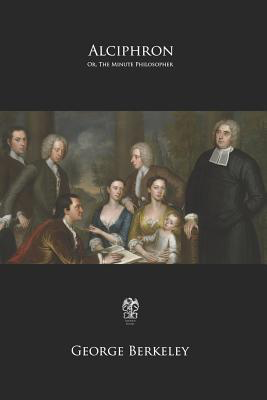
3:16: Can you summarise the benefits of your immaterialism?
GB: Ok, Richard, let me throw into the scale the great advantages that arise from the belief of immaterialism, both in regard to religion and human learning. The being of a God, and incorruptibility of the soul, those great articles of religion, are they not proved with the clearest and most immediate evidence? When I say the being of a God, I do not mean an obscure general cause of things, whereof we have no conception, but God, in the strict and proper sense of the word. A Being whose spirituality, omnipresence, providence, omniscience, infinite power and goodness, are as conspicuous as the existence of sensible things, of which (notwithstanding the fallacious pretences and affected scruples of skeptics) there is no more reason to doubt than of our own being.
Then, with relation to human sciences. In natural philosophy, what intricacies, what obscurities, what contradictions has the belief of matter led men into! To say nothing of the numberless disputes about its extent, continuity, homogeneity, gravity, divisibility, etc - do they not pretend to explain all things by bodies operating on bodies, according to the laws of motion? And yet, are they able to comprehend how one body should move another? Nay, admitting there was no difficulty in reconciling the notion of an inert being with a cause, or in conceiving how an accident might pass from one body to another; yet, by all their strained thoughts and extravagant suppositions, have they been able to reach the mechanical production of any one animal or vegetable body? Can they account, by the laws of motion, for sounds, tastes, smells, or colours; or for the regular course of things? Have they accounted, by physical principles, for the aptitude and contrivance even of the most inconsiderable parts of the universe? But, laying aside matter and corporeal causes, and admitting only the efficiency of an All-perfect Mind, are not all the effects of nature easy and intelligible? If the phenomena are nothing else but ideas; God is a spirit, but matter an unintelligent, unperceiving being. If they demonstrate an unlimited power in their cause; God is active and omnipotent, but matter an inert mass. If the order, regularity, and usefulness of them can never be sufficiently admired; God is infinitely wise and provident, but matter destitute of all contrivance and design. These surely are great advantages in physics. Not to mention that the apprehension of a distant Deity naturally disposes men to a negligence in their moral actions; which they would be more cautious of, in case they thought Him immediately present, and acting on their minds, without the interposition of matter, or unthinking second causes. Then in metaphysics: what difficulties concerning entity in abstract, substantial forms, hylarchic principles….
3:16: Hylarchic – god and matter being the same?
GB: Yep…
3:16: Ok. Sorry. Go on.
GB: … Plastic natures, substance and accident, principle of individuation, possibility of matter's thinking, origin of ideas, the manner how two independent substances so widely different as spirit and matter, should mutually operate on each other? What difficulties, I say, and endless disquisitions, concerning these and innumerable other the like points, do we escape, by supposing only spirits and ideas? Even the Mathematics themselves, if we take away the absolute existence of extended things, become much more clear and easy; the most shocking paradoxes and intricate speculations in those sciences depending on the infinite divisibility of finite extension; which depends on that supposition. But what need is there to insist on the particular sciences? Is not that opposition to all science whatsoever, that frenzy of the ancient and modern skeptics, built on the same foundation?
Or can you produce so much as one argument against the reality of corporeal things, or in behalf of that avowed utter ignorance of their natures, which does not suppose their reality to consist in an external absolute existence? Upon this supposition, indeed, the objections from the change of colours in a pigeon's neck, or the appearance of the broken oar in the water, must be allowed to have weight. But these and the like objections vanish, if we do not maintain the being of absolute external originals, but place the reality of things in ideas, fleeting indeed, and changeable - however, not changed at random, but according to the fixed order of nature. For herein consists that constancy and truth of things which secures all the concerns of life, and distinguishes that which is real from the irregular visions of the fancy
3:16: You sound Platonist here, if not even Hegelian. But let me ask you further: just how do ideas inhere in the mind - for example, are minds colored and extended when such sensible qualities “exist in” them?
GB: Those qualities are in the mind only as they are perceived by it, that is, not by way of mode or attribute, but only by way of idea.
3:16: So the mechanical view of the universe is false?
GB: What do men mean when they talk of one body's touching another? I say you never saw one body touch, or rather I say, I never saw one body that I could say touched this or that other; for that if my optics were improved, I should see intervals and other bodies behind those which now seem to touch.
3:16: But then why do some things appear to be of the mind alone and others not if they are all in the mind?
GB: Because that in proportion to pleasure or pain ideas are attended with desire, exertion, and other actions which include volition. Now volition is by all granted to be in spirit. If men would lay aside words in thinking, it is impossible they should ever mistake, save only in matters of fact. I mean it seems impossible they should be positive and secure that anything was true which in truth is not so. Certainly I cannot err in matter of simple perception. So far as we can in reasoning go without the help of signs, there we have certain knowledge. Indeed, in long deductions made by signs there may be slips of memory. From my doctrine there follows a cure for pride. We are only to be praised for those things which are our own, or of our own doing; natural abilities are not consequences of our volitions.
3:16: If there was matter would it have to think?
GB: If matter is once allowed to exist, clippings of weeds and parings of nails may think Richard, for ought that Locke can tell; though he seems positive of the contrary.
3:16: But can’t we make a distinction between things understood relative to ourselves and things understood just as they are?
GB: The philosophers talk much of a distinction between absolute and relative things, or between things considered in their own nature and the same things considered with respect to us. I know not what they mean by “things considered in themselves.” This is nonsense, jargon.
3:16: And this goes to the heart of your own philosophy, that every event in the material world must be the issue of an acting Will?
GB: Yes. Every idea has a cause, in other words, is produced by a Will.
3:16: Why don’t you agree with Descartes when he proposes mind as a thinking substance animating unthinking matter?
GB: He says there might be a thinking Substance—something unknown— which perceives, and supports, and ties together the ideas. Say I, make it appear there is any need of it and you shall have it for me. I care not to take away anything I can see the least reason to think should exist. I affirm it is manifestly absurd—no excuse in the world can be given why a man should use a word without an idea. Certainly we shall find that whatever word we make use of in matter of pure reasoning has, or ought to have, a complete idea, annexed to it, that is, its meaning, or the sense we take it in, must be completely known. It is demonstrable a man can never be brought to imagine anything should exist whereof he has no idea. Whoever says he does, banters himself with words.
3:16: And what of his famous cogito ergo sum?
GB: Tautology. No mental proposition answering thereto.
3:16: Both Descartes and Locke have the same argument to show that matter exists - can you refute them?
GB: Easily Richard. Locke in his 4th Book, and Descartes in Meditation 6, use the same argument for the existence of objects, - that sometimes we see, feel, etc against our will. But I say: While I exist or have any idea, I am eternally, constantly willing; my acquiescing in the present state is willing.
3:16: Hobbes ridicules the idea that ‘the will wills’. You disagree with him don’t you?
GB: Let me begin once more with Descartes if I may. Descartes said in the last paragraph of the last Meditation that the senses oftener inform him falsely than truly—that sense of pain tells me not my foot is bruised or broken, but I, having frequently observed these two ideas - of that peculiar pain and bruised foot go together, do erroneously take them to be inseparable by a necessity of Nature—as if Nature were anything but the ordinance of the free will of God. Descartes owns we don’t know a substance immediately by itself, but by this alone, that it is the subject of several acts. Hobbes in some degree falls in with Locke, saying thought is to the mind or himself as dancing to the dancer. Hobbes as you say ridicules those expressions of the scholastics—“the will wills,” etc. So does Locke.
I am of another mind. Descartes, in answer to Hobbes, owns he is distinct from thought as a thing from its modus or manner. The opinion that existence was distinct from perception is a horrible consequence. It is the foundation of Hobbes's doctrine. Malebranche in his illustration differs widely from me. He doubts of the existence of bodies. I doubt not in the least of this. I differ from Cartesians in that I make extension, colour, etc to exist really in bodies independent of our mind. Not to mention the combinations of powers, but to say the things—the effects themselves—do really exist, even when not actually perceived; but still with relation to perception.
3:16: Ah, so they exist to a percipient mind, but not necessarily to mine; for natural laws are independent of any individual Will, although the individual participates in perception of the ordered changes?
GB: Quite.
3:16:The related notions of regularity and of the laws of nature are central to the workability of your idealism. Why do we have such laws?
GB: To answer the quibble whereby it will be demanded to what purpose serves that curious organization of plants, and the admirable mechanism in the parts of animals; might not vegetables grow, and shoot forth leaves and blossoms, and animals perform all their motions, as well without as with all that variety of internal parts so elegantly contrived and put together, which being ideas have nothing powerful or operative in them, nor have any necessary connection with the effects ascribed to them? And how comes it to pass, that whenever there is any fault in the going of a watch, there is some corresponding disorder to be found in the movements, which being mended by a skilful hand, all is right again?
The like may be said of all the clockwork of nature, a great part is so wonderfully fine and subtle, as scarce to be discerned by the best microscope. In short, it will be asked, how upon our principles any tolerable account can be given, or any final cause assigned of an innumerable multitude of bodies and machines framed with the most exquisite art, which in the common philosophy have very apposite uses assigned them, and serve to explain abundance of phenomena.
3:16: I see. So the laws of nature which make nature ordered and predictable are useful, so that when we have ideas of a flower, say, we will find that if we pull it apart, we will observe the usual internal structure of such flowers, with the same transport tissues, reproductive parts, etc. So instead of causes the scientists (your natural philosophers) consider signs, and that’s what we get laws of nature from?
GB: Yes. If we consider the difference between natural philosophers and other men, with regard to their knowledge of the phenomena, we shall find it consists, not in an exacter knowledge of the efficient cause that produces them, for that can be no other than the will of a spirit, but only in a greater largeness of comprehension, whereby analogies, harmonies, and agreements are discovered in the works of nature, and the particular effects explained, that is, reduced to general rules, rules grounded on the analogy, and uniformness observed in the production of natural effects are most agreeable and sought after by the mind; for they extend our prospect beyond what is present, and near to us, and enable us to make very probable conjectures, touching things that may have happened at very great distances of time and place, as well as to predict things to come.
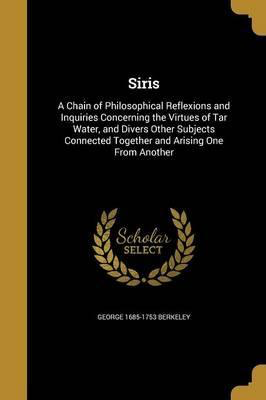
3:16: So science is about reduction to regularities, not discovering causes?
GB: Yes.
3:16: It still looks like your world is nothing but idea rather than reality.
GB: Everything as real as ever. I hope to call a thing idea makes it not the less real. Truly I should perhaps have stuck to the word thing, and not mentioned the word idea. Anyone that shall attend to what is meant by the term exist when applied to sensible things. The table I write on, I say, exists, that is, I see and feel it; and if I were out of my study I should say it existed, meaning thereby that if I was in my study I might perceive it, or that some other spirit actually does perceive it.
3:16: Wouldn’t that mean that the table pops in and out of existence?
GB: No because some other spirit will ensure they endure.
3:16: You mean God’s always perceiving?
GB: Quite.
3:16: Locke argues that mental propositions are difficult because they are complex. Is he right?
GB: No, it is not because of complex but because of abstract ideas. The idea of a horse is as complex as that of fortitude. Yet in saying the “horse is white” I form a mental proposition with ease. But when I say “fortitude is a virtue” I shall find a mental proposition hard, or not at all to be come at. Pure intellect I don’t understand.
3:16: You’re an Anglican bishop – how do you fit religion into your worldview? You say God is the perceiving Spirit that means everything persists even when we aren't looking, but how do you know this?
GB: When I say I will reject all propositions wherein I know not fully and adequately and clearly, so far as knowable, the thing meant thereby, this is not to be extended to propositions in the Scripture. I speak of matters of reason and philosophy—not revelation. In this I think a humble, implicit faith becomes us (when we cannot comprehend or understand the proposition), such as a popish peasant gives to propositions he hears at mass in Latin. This proud men may call blind, popish, implicit, irrational. For my part I think it is more irrational to pretend to dispute at, cavil, and ridicule holy mysteries, that is, propositions about things that are altogether above our knowledge, out of our reach.
3:16: So the big questions about God and so forth aren’t useful?
GB: It’s absurd to argue the existence of God from his idea. We have no idea of God. It’s impossible. I am certain there is a God, though I do not perceive Him—have no intuition of Him. This not difficult if we rightly understand what is meant by certainty. It seems that the soul, taken for the Will, is immortal, incorruptible.
3:16: You think it’s in God that we have our being don’t you?
GB: When my doctrines’ rightly understood, all that philosophy of Epicurus, Hobbes, Spinoza, which has been a declared enemy of religion, comes to the ground. Hobbes and Spinoza make God extended. Locke also seems to do the same. Being, thing, something are called transcendental terms says Spinoza who gives an odd account of their original. Also of the original of all universals Spinoza will have God to be “the immanent cause of all things,” and to countenance this produces that of St. Paul, “in Him we live,” etc. Now this of St. Paul may be explained by my doctrine as well as Spinoza's, or Locke's, or Hobbes's.
3:16: So is God extended, embodied?
GB: Well, as I just explained, Locke, More, and others seem to make God extended. It’s nevertheless of great use to religion to take extension out of our idea of God, and put a power in its place. It seems dangerous to suppose extension, which is manifestly inert, in God. As I said earlier, God is a spirit, but matter an unintelligent, unperceiving being. If they demonstrate an unlimited power in their cause; God is active and omnipotent, but matter an inert mass. God is infinitely wise and provident, but Matter destitute of all contrivance and design. Look Richard, God is a Being of transcendent and unlimited perfections: His nature, therefore, is incomprehensible to finite spirits. It is not, therefore, to be expected, that any man, whether Materialist or Immaterialist, should have exactly just notions of the Deity, His attributes, and ways of operation.
3:16: But couldn’t I say that the thought or perception I call extension is not itself in an unthinking thing or matter—but it is like something which is in matter?
GB: Do you apprehend or conceive what you say extension is like, or do you not? If the latter, how know you they are alike? How can you compare any things besides your own ideas? If the former, it must be an idea, that is, a perception, thought, or sensation—which to be in an unperceiving thing is a contradiction.
3:16: Descartes and Malebranche think God gives them reasons to think there are bodies.
GB: True, Descartes and Malebranche say God has given us strong inclinations to think our ideas proceed from bodies, or that bodies do exist. Pray what do they mean by this? Would they have it that the ideas of imagination are images of, and proceed from, the ideas of sense? This is true, but cannot be their meaning; for they speak of ideas of sense as themselves proceeding from, being like unto—I know not what!
3:16: This is the essence of your philosophy isn’t it – that a blind agent is a contradiction?
GB: Yes.
3:16: What about the existence of the universe before our minds? Can there be a universe before minds existed according to you?
GB: I may say earth, plants, etc were created before man—there being other intelligences to perceive them, before man was created.
3:16: Do things have a potential objective existence in the Divine Will?
GB: Yes. Bodies do exist even when not perceived—they being powers in the active being. I am more certain of the existence and reality of bodies than Mr. Locke; since he pretends only to what he calls sensitive knowledge, whereas I think I have demonstrative knowledge of their existence—by them meaning combinations of powers in an unknown substratum…
3:16: The unknown substratum being the mind, God?
GB: Yes.
3:16: Go on.
GB: Colours in the dark do exist really, in that were there light; or as soon as light comes, we shall see them, provided we open our eyes; and that whether we will or no.
3:16: I still don’t think I understand how things can exist when they are not perceived if everything is perception?
GB: Bodies do exist whether we think of them or not, they being taken in a twofold sense— collections of thoughts or collections of powers to cause those thoughts. These later exist; though perhaps apart from me it may be one simple perfect power. Bodies taken for powers do exist when not perceived; but this existence is not actual. When I say a power exists, no more is meant than that if in the light I open my eyes, and look that way, I shall see it, the body and so forth.
3:16: No matter at all?
GB: No. There is no active power but the Will: therefore matter, if it exists, affects us not Richard. Keep up!
3:16: What is morality in this world then?
GB: Sensual pleasure is the summum bonum. This the great principle of morality. This once rightly understood, all the doctrines, even the severest of the Gospels, may clearly be demonstrated. Sensual pleasure, qua pleasure, is good and desirable by a wise man. But if it be contemptible, it is not qua pleasure but qua pain, or cause of pain, or (which is the same thing) of loss of greater pleasure. There be two sorts of pleasure. The one is ordained as a spur or incitement to somewhat else, and has a visible relation and subordination thereto; the other is not. Thus the pleasure of eating is of the former sort, of music of the later sort. These may be used for recreation, those not but in order to their end.
3:16: And in moral matters are we free?
GB: In moral matters men think (it is true) that they are free; but this freedom is only the freedom of doing as they please; which freedom is consecutive to the Will, respecting only the operative faculties. Men impute their actions to themselves because they willed them, and that not out of ignorance, but whereas they have the consequences of them, whether good or bad. This does not prove men to be indifferent in respect of desiring. If anything is meant by the potentia it must be desire; but I appeal to any man if his desire be indifferent, or (to speak more to the purpose) whether he himself be indifferent in respect of what he desires till after he has desired it; for as for desire itself, or the faculty of desiring, that is indifferent, as all other faculties are. Actions leading to heaven are in my power if I will them: therefore I will will them.
3:16: Thanks for the Tar Water George. And to end with, are there five books you can recommend to take us further into you philosophical world?
GB: 
Descartes,
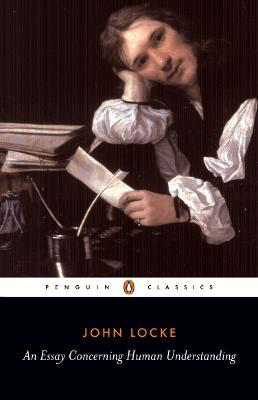
Locke,
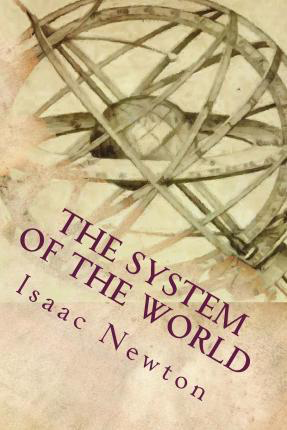
Newton,
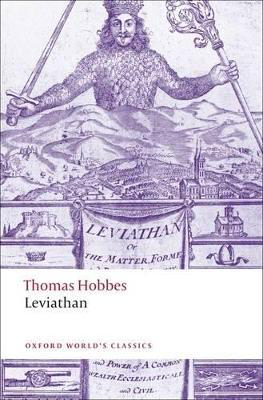
Hobbes,
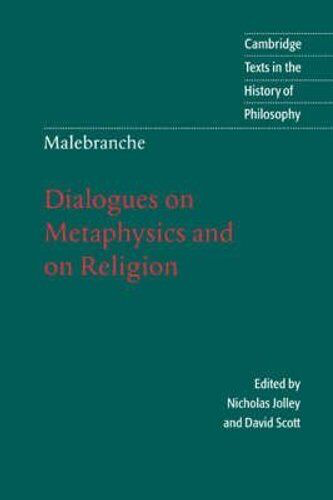
Malbranche.
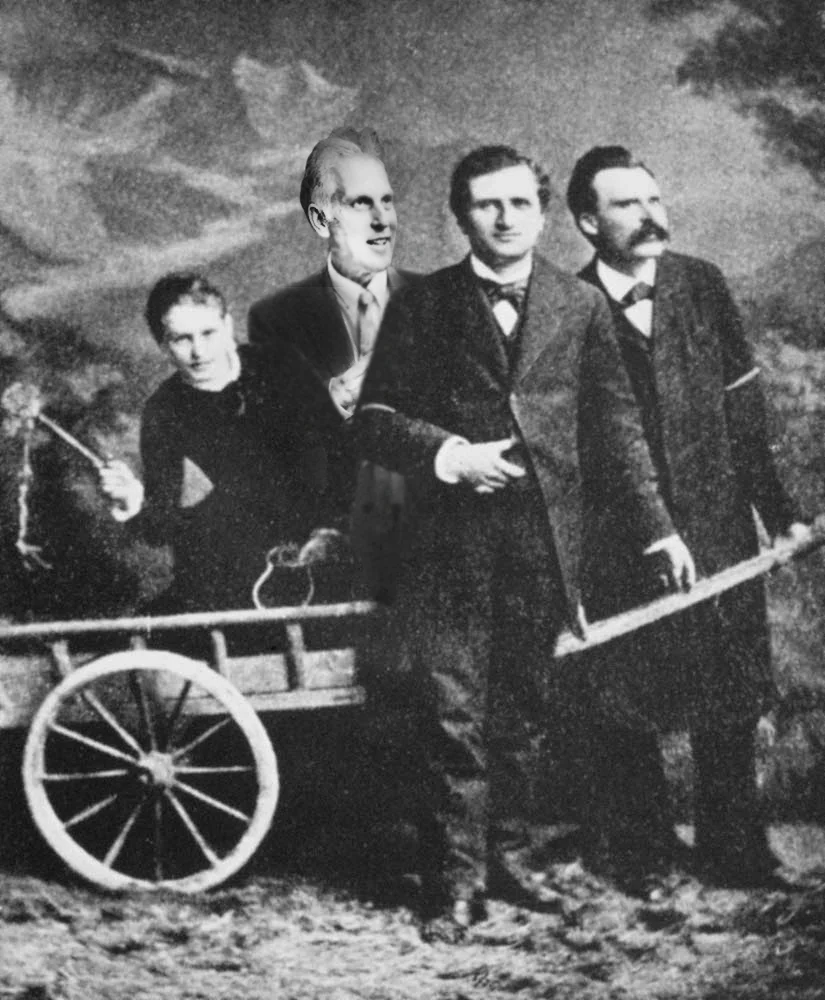
Other interviews- Hobbes, Locke, Cudworth, Hume, Leibniz, Leporin Erxleben, Fichte, Schiller, Herder, Kierkegaard, Schelling, Kant, Dilthey, Marx, Descartes, Hegel, Schopenhauer, Nietzsche
About the Author
Richard Marshall is still biding his time.